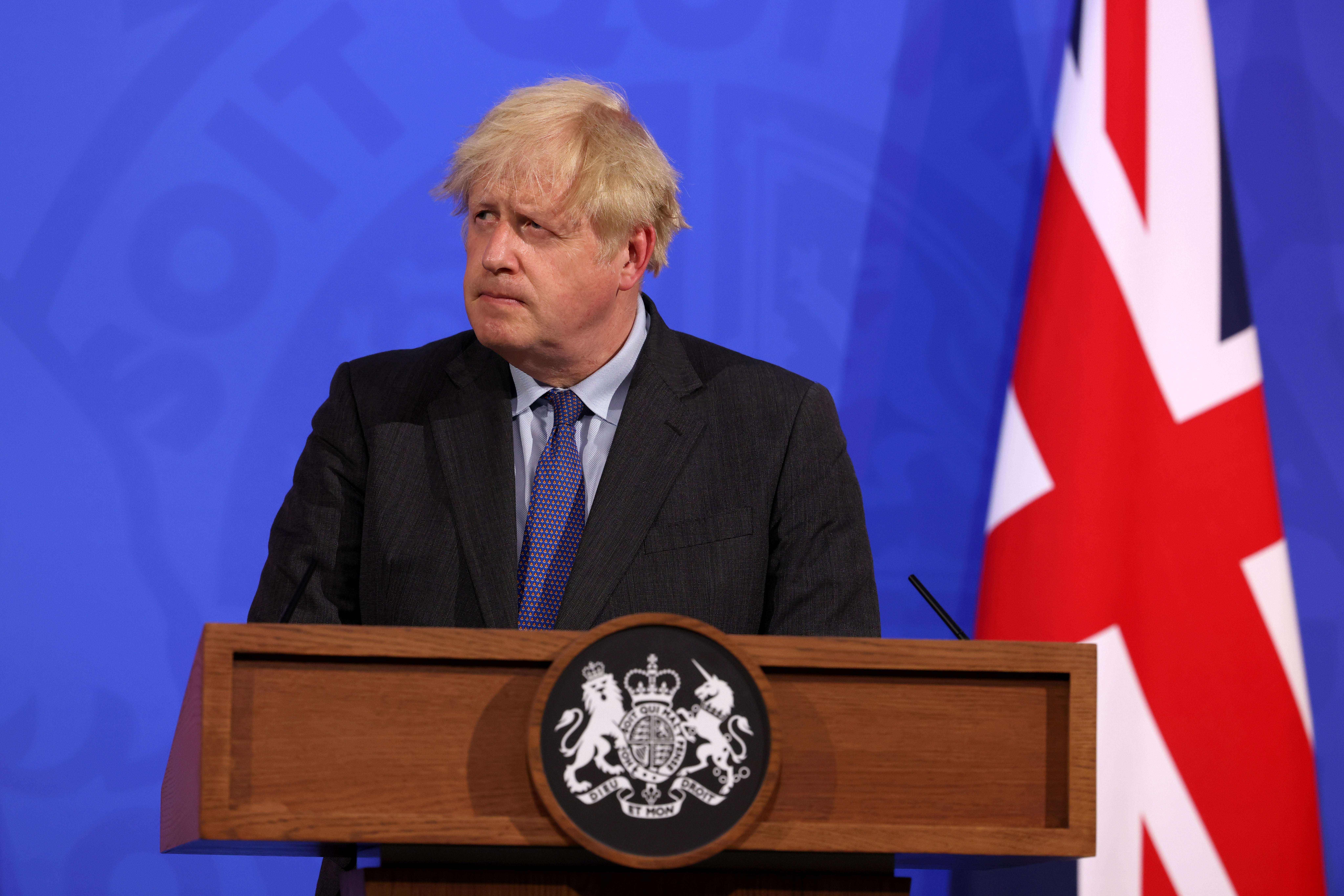Tory MP branded conspiracy theorist after claiming government lied to ‘dupe’ people into accepting longer lockdown
Marcus Fysh has criticised the government for extending lockdown measures

Your support helps us to tell the story
From reproductive rights to climate change to Big Tech, The Independent is on the ground when the story is developing. Whether it's investigating the financials of Elon Musk's pro-Trump PAC or producing our latest documentary, 'The A Word', which shines a light on the American women fighting for reproductive rights, we know how important it is to parse out the facts from the messaging.
At such a critical moment in US history, we need reporters on the ground. Your donation allows us to keep sending journalists to speak to both sides of the story.
The Independent is trusted by Americans across the entire political spectrum. And unlike many other quality news outlets, we choose not to lock Americans out of our reporting and analysis with paywalls. We believe quality journalism should be available to everyone, paid for by those who can afford it.
Your support makes all the difference.A Conservative MP has been accused of engaging with “baseless Covid conspiracy theories” after claiming the government used false information to “dupe people” into accepting a longer lockdown.
Marcus Fysh, the MP for Yeovil, claimed in a series of tweets that the government had made “patently untrue” claims about the effectiveness of vaccines against the Delta variant.
An opponent of prolonging Covid measures, Mr Fysh claimed this week, ahead of Boris Johnson’s announcement, that there was “no need to panic” about rising cases.
But on Tuesday morning, following the prime minister’s statement, he went further and accused the government of using underhand tactics to get its way and bring the public onside.
“Briefing to the media by the government that vaccine first doses weren’t effective against the Delta variant as the main reason not to release on 21 June was patently untrue, as they must have known,” he said.
“Do they really think that builds the credibility of public health decision-making?”
Mr Fysh added that he believed the government thought vaccines were effective against the new variant after a single dose but had “briefed the media the other way to dupe people into accepting further lockdown”.
A recent study from Public Health England shows that one dose of both the Pfizer and AstraZeneca vaccines is only 33 per cent effective against the Delta variant, which now accounts for nine out of 10 new Covid cases in the UK.
This rises to 60 per cent after two doses of AstraZeneca and 88 per cent after two Pfizer jabs.
But both vaccines are “highly effective” at preventing hospitalisation, according to Public Health England research announced on Monday.
However, it could take up to 28 days after the first dose of either vaccine for the recipient to have sufficient immunity, other research released on Monday indicated.
Liberal Democrat health spokesperson Munira Wilson said: “A sitting Member of Parliament should know better than to engage with baseless Covid conspiracy theories.
“He has got his figures totally muddled and should think longer about the consequences for public health before he tweets from the hip.
“The allegation that his own government is making figures up to trick the public into lockdown is so serious, I wonder how Boris Johnson can stomach having him in his party.”
Join our commenting forum
Join thought-provoking conversations, follow other Independent readers and see their replies
Comments